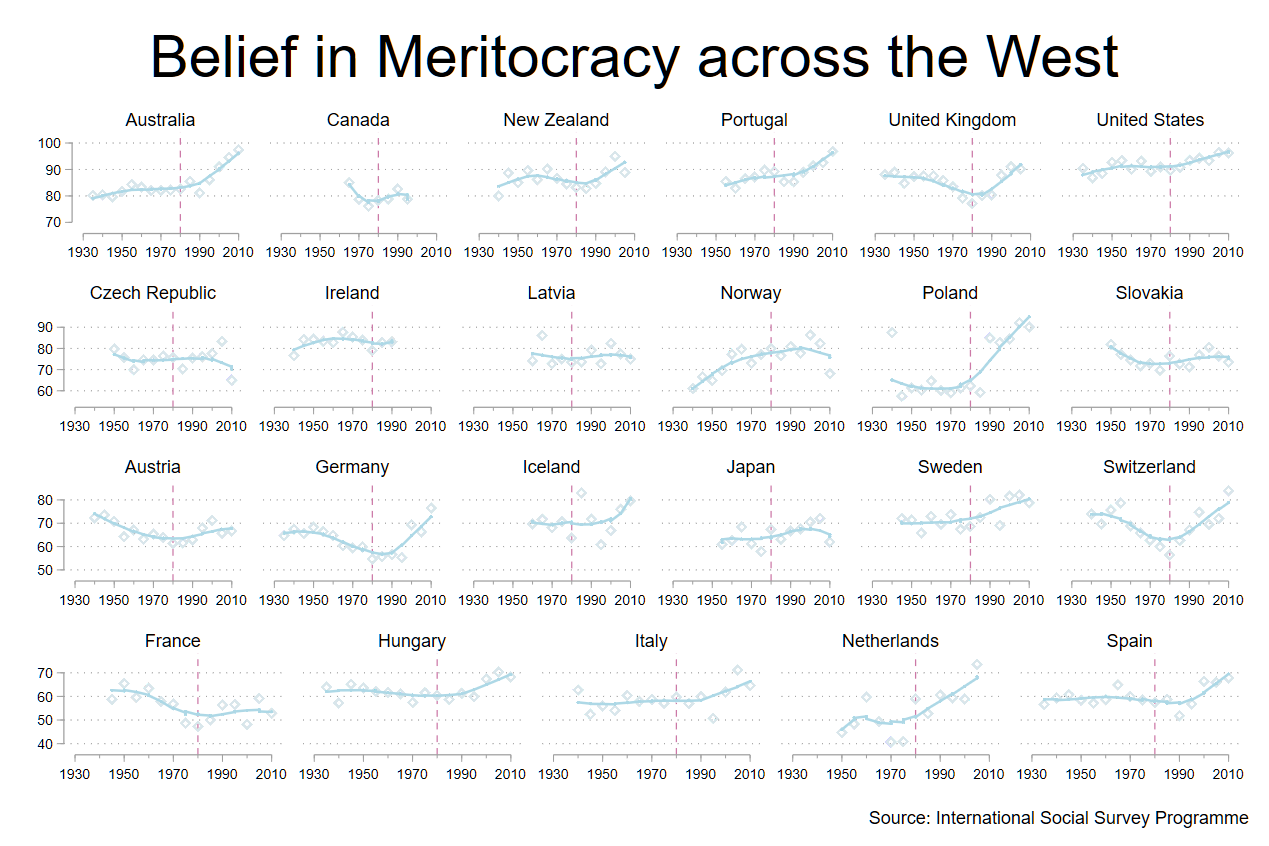The gulf between the rich and poor is widening – we just can't see it
Data has shown that without direct knowledge of how people unlike us live, we take our own circumstances for granted
Inequality is on the rise in Britain, as it is across most of the West. Since the 1980s, income gains have been concentrated among the top 1 per cent, whose economic fortunes have grown at a much faster pace than the rest of society. The top 10 per cent of households now take home about a third of all income, and own two-thirds of all wealth.
This widening gap between the haves and have-nots increasingly preoccupies scholars and journalists, and policymakers, all the way to the World Economic Forum in Davos. Curiously, however, the evidence suggests that few citizens share these concerns. In fact, people in some of the most unequal societies seem to be the least worried about inequality. Why is this the case?
In my research, which draws on detailed data on nearly 50,000 individuals across 23 Western countries over many decades, we see that in every country and era most people believe theirs is a meritocratic society, where economic success comes to those who work for it.

The graph summarises the pattern of belief in meritocracy by the time period in which people grew up. For each country and time point, it shows the approximate percentage of people who believe that economic success is determined by hard work. Marked in red is the point, in 1980, when inequalities started growing most rapidly across the West.
Strikingly, the data indicates that as inequality has grown from the 1980s onward, so has the percentage of people who believe that economic success is the result of individual hard work and merit.
Today, at least two-thirds of citizens in all countries – and up to 90 per cent of Britons – attribute success to meritocratic factors. What’s more, they are less and less likely to believe that structural inequalities like the family you’re born in or the colour of your skin play a key part in determining where you end up on the social ladder.
Why do people increasingly see the world as a place where wealth accrues to the cleverest, the hardest-working and most deserving? In short: as the wealth gap has widened, the lives lived across the income gap fade from view. Paradoxically, the more unequal our society grows, the less we experience it in our daily lives.
Rising income inequality means that the rich and poor are living at greater social distance from one another, and interactions across economic fault lines are becoming increasingly rare. Children grow up in poor or wealthy neighbourhoods and attend schools segregated by social class.
They find friends, romantic partners and spouses within their own socioeconomic circles. They compete for jobs in increasingly polarised labour markets: one for the highly educated, another for those without a university degree. The workplace mirrors our social networks: in terms of education and social class, our colleagues look a lot like ourselves.
Consequently, both the haves and the have-nots develop an understanding of society and their own place in it from a position of social insulation. They understand the state of the world through the prism of their social networks: friends, colleagues and neighbours, who are more and more likely to share their educational experience and economic success.
As a result, people greatly underestimate the extent of inequalities. When asked how much more a CEO makes than their ground level workers, British people put the income ratio at 15:1. In reality it is closer to 90:1.
The data shows that people similarly discount the role played by social class and connections in where each of us ends up. Without direct knowledge of how people unlike us live, we take our own circumstances for granted. We normalise the advantages or disadvantages that come with our family, gender, and colour of our skin. We praise ourselves for our success, and we internalise our failures.
From within our social and economic echo chambers, we are unlikely to be swayed by statistics and news reports that challenge the meritocratic narrative that success has been fairly distributed. The United States of 2019 offers a foretaste of where the United Kingdom might be heading: a public ever more divided socially and economically, but still asleep dreaming of equal opportunities.
In other words, unequal societies are stuck in a feedback loop. Paradoxically, greater inequality makes it harder to see first-hand the contrast between society’s “winners” and “losers” – and makes it easier not to care about how sharp these contrasts are.
Breaking the loop requires taking seriously both the reality of people’s lived experiences, and the significance of their beliefs about inequality even when they are at odds with the truth.
Above all, it requires the will to design public policies that bring the two sides of the inequality divide into closer proximity: in schools, neighbourhoods, workplaces and ultimately as friends and romantic partners.
Jonathan Mijs is assistant professorial research fellow at the London School of Economics’ International Inequalities Institute


Join our commenting forum
Join thought-provoking conversations, follow other Independent readers and see their replies